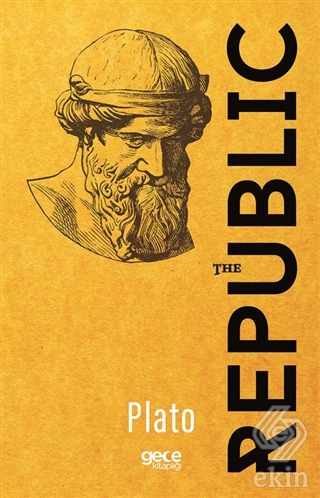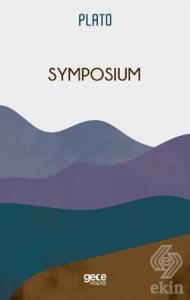
Is not the Republic the vehicle of three or four great truths which, to Plato's own mind, are most naturally represented in the form of the State? Just as in the Jewish prophets the reign of Messiah, or 'the day of the Lord,' or the suffering Servant or people of God, or the 'Sun of righteousness with healing in his wings' only convey, to us at least, their great spiritual ideals, so through the Greek State Plato reveals to us his own thoughts about divine perfection, which is the idea of good like the sun in the visible world; about human perfection, which is justice about education beginning in youth and continuing in later years about poets and sophists and tyrants who are the false teachers and evil rulers of mankind about 'the world' which is the embodiment of them about a kingdom which exists nowhere upon earth but is laid up in heaven to be the pattern and rule of human life.
No such inspired creation is at unity with itself, any more than the clouds of heaven when the sun pierces through them. Every shade of light and dark, of truth, and of fiction which is the veil of truth, is allowable in a work of philosophical imagination. It is not all on the same plane; it easily passes from ideas to myths and fancies, from facts to figures of speech. It is not prose but poetry, at least a great part of it, and ought not to be judged by the rules of logic or the probabilities of history. The writer is not fashioning his ideas into an artistic whole; they take possession of him and are too much for him. We have no need therefore to discuss whether a State such as Plato has conceived is practicable or not, or whether the outward form or the inward life came first into the mind of the writer.
For the practicability of his ideas has nothing to do with their truth; and the highest thoughts to which he attains may be truly said to bear the greatest 'marks of design' justice more than the external frame-work of the State, the idea of good more than justice. The great science of dialectic or the organisation of ideas has no real content; but is only a type of the method or spirit in which the higher knowledge is to be pursued by the spectator of all time and all existence. It is in the fifth, sixth, and seventh books that Plato reaches the 'summit of speculation,' and these, although they fail to satisfy the requirements of a modern thinker, may therefore be regarded as the most important, as they are also the most original, portions of the work.
It is not necessary to discuss at length a minor question which has been raised by Boeckh, respecting the imaginary date at which the conversation was held (the year 411 B.C. which is proposed by him will do as well as any other); for a writer of fiction, and especially a writer who, like Plato, is notoriously careless of chronology (cp. Rep., Symp., 193 A, etc.), only aims at general probability. Whether all the persons mentioned in the Republic could ever have met at any one time is not a difficulty which would have occurred to an Athenian reading the work forty years later, or to Plato himself at the time of writing (any more than to Shakespeare respecting one of his own dramas); and need not greatly trouble us now.
Yet this may be a question having no answer 'which is still worth asking,' because the investigation shows that we cannot argue historically from the dates in Plato; it would be useless therefore to waste time in inventing far-fetched reconcilements of them in order to avoid chronological difficulties, such, for example, as the conjecture of C.F. Hermann, that Glaucon and Adeimantus are not the brothers but the uncles of Plato (cp. Apol. 34 A), or the fancy of Stallbaum that Plato intentionally left anachronisms indicating the dates at which some of his Dialogues were written.
Is not the Republic the vehicle of three or four great truths which, to Plato's own mind, are most naturally represented in the form of the State? Just as in the Jewish prophets the reign of Messiah, or 'the day of the Lord,' or the suffering Servant or people of God, or the 'Sun of righteousness with healing in his wings' only convey, to us at least, their great spiritual ideals, so through the Greek State Plato reveals to us his own thoughts about divine perfection, which is the idea of good like the sun in the visible world; about human perfection, which is justice about education beginning in youth and continuing in later years about poets and sophists and tyrants who are the false teachers and evil rulers of mankind about 'the world' which is the embodiment of them about a kingdom which exists nowhere upon earth but is laid up in heaven to be the pattern and rule of human life.
No such inspired creation is at unity with itself, any more than the clouds of heaven when the sun pierces through them. Every shade of light and dark, of truth, and of fiction which is the veil of truth, is allowable in a work of philosophical imagination. It is not all on the same plane; it easily passes from ideas to myths and fancies, from facts to figures of speech. It is not prose but poetry, at least a great part of it, and ought not to be judged by the rules of logic or the probabilities of history. The writer is not fashioning his ideas into an artistic whole; they take possession of him and are too much for him. We have no need therefore to discuss whether a State such as Plato has conceived is practicable or not, or whether the outward form or the inward life came first into the mind of the writer.
For the practicability of his ideas has nothing to do with their truth; and the highest thoughts to which he attains may be truly said to bear the greatest 'marks of design' justice more than the external frame-work of the State, the idea of good more than justice. The great science of dialectic or the organisation of ideas has no real content; but is only a type of the method or spirit in which the higher knowledge is to be pursued by the spectator of all time and all existence. It is in the fifth, sixth, and seventh books that Plato reaches the 'summit of speculation,' and these, although they fail to satisfy the requirements of a modern thinker, may therefore be regarded as the most important, as they are also the most original, portions of the work.
It is not necessary to discuss at length a minor question which has been raised by Boeckh, respecting the imaginary date at which the conversation was held (the year 411 B.C. which is proposed by him will do as well as any other); for a writer of fiction, and especially a writer who, like Plato, is notoriously careless of chronology (cp. Rep., Symp., 193 A, etc.), only aims at general probability. Whether all the persons mentioned in the Republic could ever have met at any one time is not a difficulty which would have occurred to an Athenian reading the work forty years later, or to Plato himself at the time of writing (any more than to Shakespeare respecting one of his own dramas); and need not greatly trouble us now.
Yet this may be a question having no answer 'which is still worth asking,' because the investigation shows that we cannot argue historically from the dates in Plato; it would be useless therefore to waste time in inventing far-fetched reconcilements of them in order to avoid chronological difficulties, such, for example, as the conjecture of C.F. Hermann, that Glaucon and Adeimantus are not the brothers but the uncles of Plato (cp. Apol. 34 A), or the fancy of Stallbaum that Plato intentionally left anachronisms indicating the dates at which some of his Dialogues were written.
| Taksit Sayısı | Taksit tutarı | Genel Toplam |
|---|---|---|
| Tek Çekim | 413,39 | 413,39 |
| 2 | 210,83 | 421,66 |
| 3 | 143,31 | 429,93 |
| Taksit Sayısı | Taksit tutarı | Genel Toplam |
|---|---|---|
| Tek Çekim | 413,39 | 413,39 |
| 2 | 210,83 | 421,66 |
| 3 | 143,31 | 429,93 |
| Taksit Sayısı | Taksit tutarı | Genel Toplam |
|---|---|---|
| Tek Çekim | 413,39 | 413,39 |
| 2 | 210,83 | 421,66 |
| 3 | 143,31 | 429,93 |
























